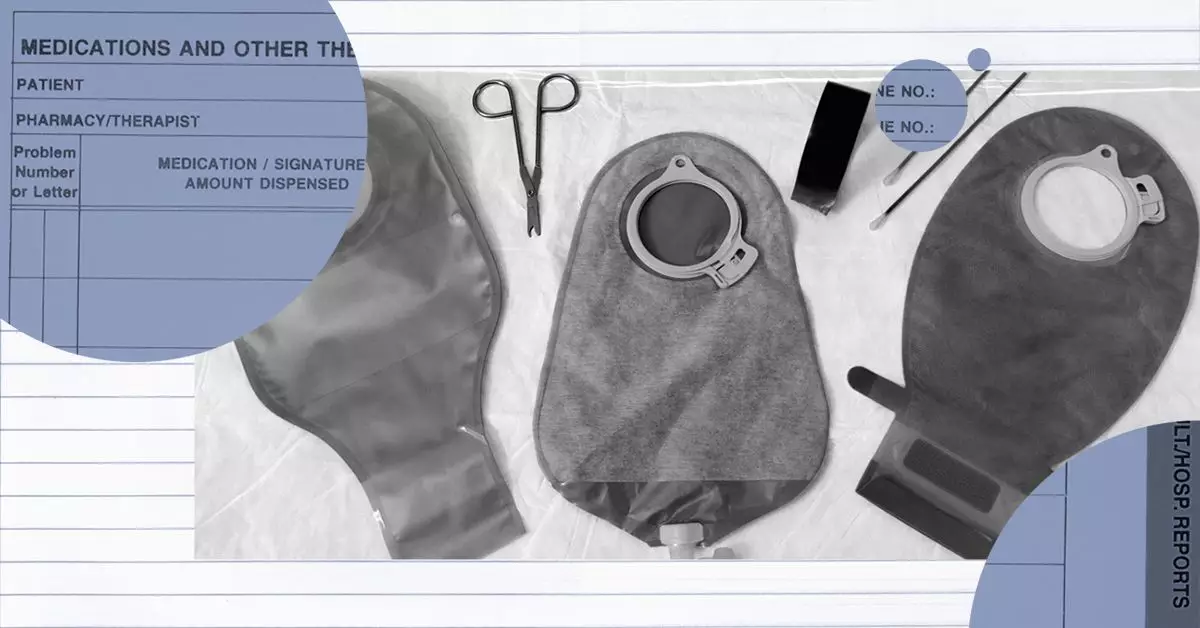Ileostomy bags are essential medical devices for individuals who have undergone an ileostomy procedure, a surgical operation that reroutes the digestive system due to various health issues, including severe inflammatory bowel diseases like Crohn’s disease. Though immensely beneficial in managing gastrointestinal health, living with an ileostomy bag requires diligent care and awareness. This article delves into the functionality of ileostomy bags, outlines care practices, and discusses their impact on daily life and overall well-being.
An ileostomy bag functions as a collection pouch attached to the stoma—a surgically constructed opening in the abdominal wall. The purpose of this device is to facilitate the disposal of digestive waste when the normal passage through the anus has been disrupted. This scenario often arises after surgical interventions that address conditions like bowel obstructions or severe colitis. Unlike traditional bowel movements, where waste is expelled from the rectum, an ileostomy bag continuously collects waste, necessitating regular emptying—sometimes multiple times a day—to prevent leaks and manage odor.
Adopting effective care strategies is vital for the successful management of an ileostomy bag. The first line of defense in skin care involves keeping the area around the stoma clean and dry. Individuals are advised to empty their bags when it reaches one-third to one-half full to mitigate risks of leaks and undue pressure that might lead to skin challenges. More specifically, thorough washing of the skin before reattaching a fresh bag minimizes the likelihood of skin irritation and infections.
Additionally, it is advisable to replace the pouch every 2 to 3 days, though some may opt to extend this duration based on their specific output and comfort level. Observing personal preferences plays a significant role in determining optimal maintenance routines, as some individuals might find comfort in changing their pouches more frequently for hygiene purposes.
Complications such as skin irritation and stoma infection are potential issues for individuals with an ileostomy. Early identification of symptoms—such as redness, swelling, or unexpected discharge—plays a crucial role in effective management and treatment. Consulting healthcare professionals is vital if unusual symptoms arise, as they can provide tailored advice or prescribe therapeutic interventions. In most cases, proper care and preventive measures can help individuals avoid these complications altogether.
Moreover, individuals are encouraged to avoid tight clothing that could contribute to discomfort and pressure on the pouch or stoma. Loose-fitting attire can help maintain effective circulation and minimize pressure, thereby enhancing comfort throughout the day.
Adapting dietary habits can significantly ease the transition to living with an ileostomy bag. Many individuals find that consuming smaller meals more frequently helps manage digestive flow, leading to more predictable and controlled output. Avoiding large meals in the evening can also reduce the likelihood of nighttime bowel movements, allowing for uninterrupted sleep.
Furthermore, individuals are empowered to make food choices that align with their health needs and preferences. Foods that can cause gas or bloating should be approached with caution, as they may affect the integrity of the bag and the comfort of the individual.
While some may fear that an ileostomy could detrimentally impact their quality of life, many individuals experience significant improvement following the procedure. The underlying issues necessitating the ileostomy—such as recurrent infections or debilitating bowel symptoms—are often alleviated, enabling a return to normal activities. It is important to stress that an ileostomy bag, while life-altering, should not dictate one’s lifespan; rather, it can enhance quality of life by preventing severe health complications.
While ileostomy bags serve as essential tools for managing digestion after significant surgical interventions, they demand an informed and proactive approach to care. Adopting best practices in maintenance, recognizing potential complications, and making lifestyle adjustments can empower individuals to lead fulfilling lives post-surgery.

